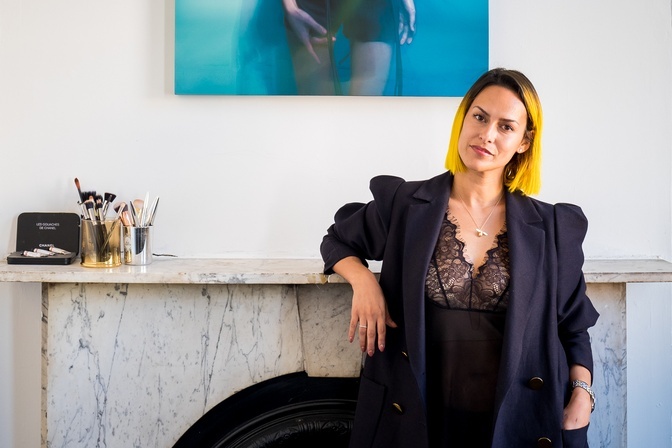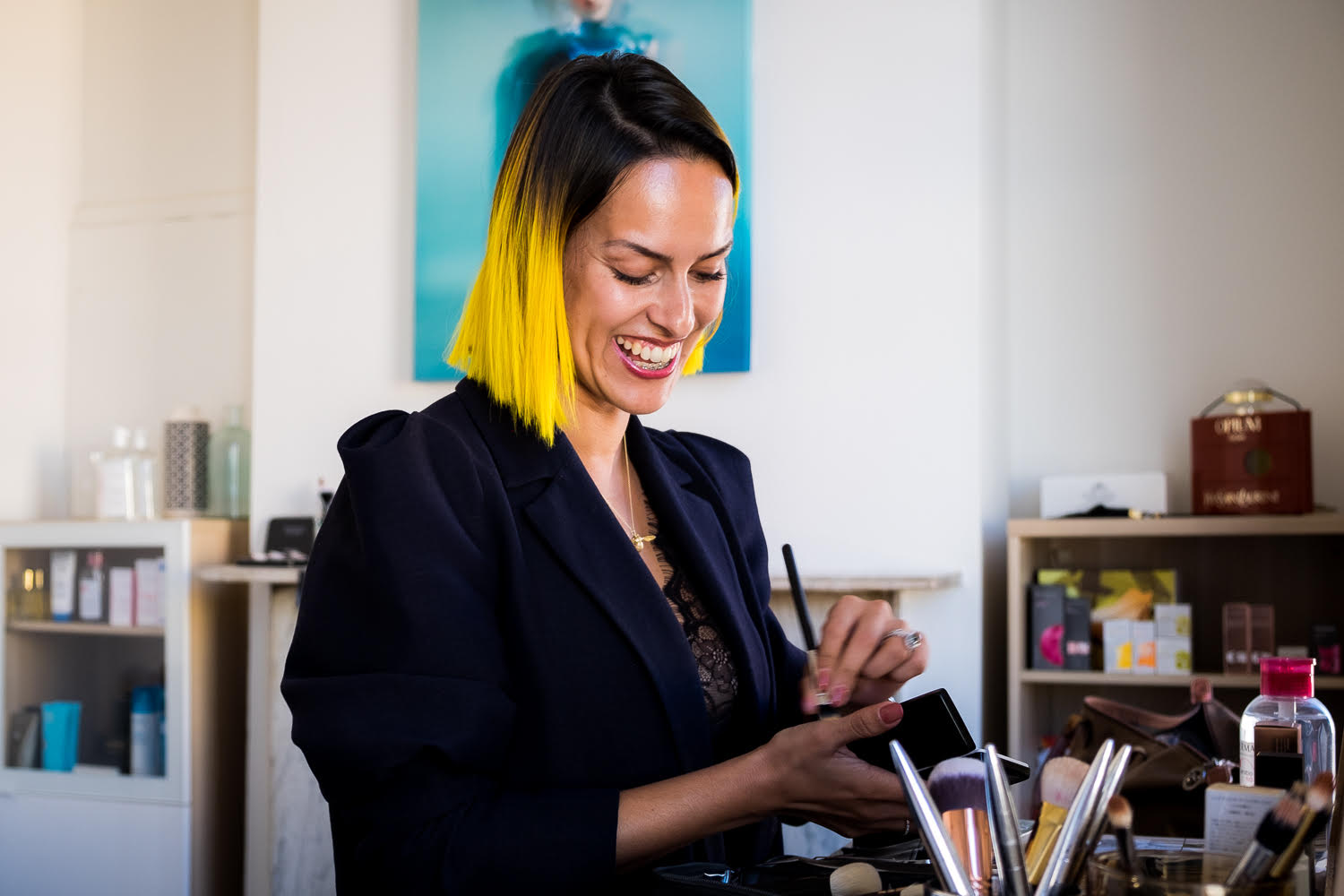Shella Martin's original career choice looked very different.

“I didn’t even want to be a make-up artist,” Martin says. “I thought I had the self-imposed family pressures of becoming something I thought they would approve of – a dermatologist or something like that.”
Martin grew up in Canberra, but moved to Melbourne in her early 20s in search of a career. She soon landed a job at Telstra as part of a sales team. The role, however, was short-lived. Her team was made redundant due to budget cuts.
“So I rang my mum for advice. She was also a make-up artist and convinced me to do this make-up short course at Napoleon Perdis. She thought it would be something to keep me occupied and a way to make some quick money.”
Soon after completing the course, Martin was approached by the organisers with a surprising request. Noticing Martin’s talent, they asked her if she wanted to become one of the trainers.
“I said ‘thanks but no thanks. I need to find a real job’” Martin explains. “Growing up I had obviously learnt a lot from Mum that I didn’t really realise. It must have just rubbed off on me from all those times I had sat on the end of the bed watching her making up brides.
Several weeks later, Napoleon Perdis approached Martin again to work at a fashion week event. This time she said yes. “It sounded like fun,” she says.
“It was my light bulb moment. I’d never seen anything like [the fashion week]. It just made my heart skip a beat seeing it. The styling. The makeup. The theatre of it all."
Sparked by newfound enthusiasm, Martin then took a job at Myer as one of the “Yves Saint Laurent spray girls”. A year later, she had worked her way up to being the Victorian event specialist.
“That role was when it kind of clicked that I had found a career I wanted to go ahead with. There was one particular occasion where I spoke to an audience about YSL makeup and ways to wear it. It felt wonderful to be able to hand bespoke knowledge to people based on my own experiences.”
During her time at YSL, Martin started to freelance on the side, working on a variety of commercial, bridal and editorial projects.
“I started to do any type of work I could get my hands on during lunch breaks and days off because I kept getting clients I’d see at the counter referring me for jobs,” Martin says. “I was able to build a book of clients and meet some great creative professionals.”
It was through freelancing that Martin met her hairdresser husband and future business partner, Ben.

In 2010, Martin and Ben opened up Salon XVI, a Melbourne commercial hair and make-up salon. Both professionals brought their growing books of freelance clients.
“We both spruiked each other all the time,” says Martin. “We are able to approach brands and our commercial clients and let them know that we are on hand as a team full-time.
“We started working with Foxtel, OK! Magazine, New Weekly. And they just kept coming back.”
Today, Salon XVI remains a thriving local business. Shella Martin continues to work at fashion events around the world, and has collaborated with writers on editorials for Elle, Fashion Journal and Spook Magazine.
For anyone out there doubtful about a career in make-up or creative industries, Martin’s journey stands as an inspiring success story.
“I’d advise any junior make-up artist to get as much experience at fashion shows as possible,” Martin says. “For me, it was a chance to think on my feet in a high-pressure environment. You also get to meet great professionals and gain a lot of industry connections.”
Martin emphasises the benefit of the freelancing life. “It gives you the best opportunity to meet new people, collaborations and potentially new clients,” she says.
“I also recommend that you contact and assist your favourite make-up artist. At first, we may not respond because we don’t want to and because we’re pressed for time. However, the person that emails me the third and fourth time is the person that gets the phone call.”
This article is presented in partnership with Hostplus, which has your super covered no matter your role and how it changes through your career.



